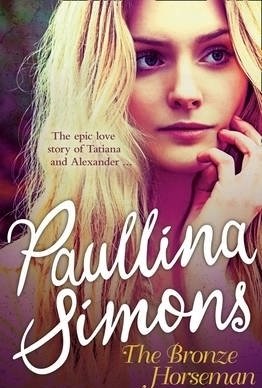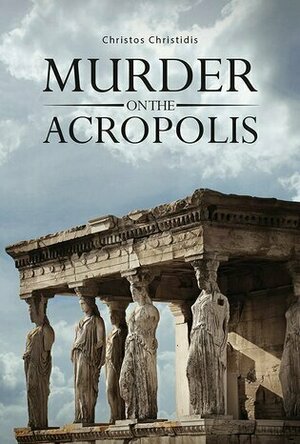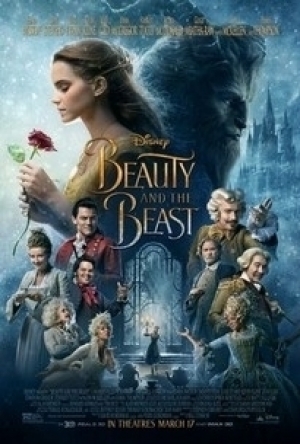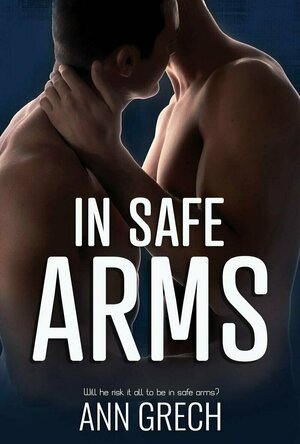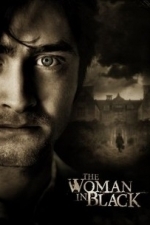
The Mortal Coil by Polaris
Album Watch
Will Australia ever stop churning out world-class heavy acts? The answer is of course, a resounding...
Rock
Leanne Crabtree (480 KP) rated The Bronze Horseman in Books
Jan 6, 2021
Reading this on Scribd probably wasn't the best idea ever. Having to sit at my computer for god knows how many hours while I read all 800+ pages...
It started great, I loved Tatiana and her first meeting with Alexander...but then it went downhill from there when it turned out Alexander was the guy her sister had been seeing. It got progressively worse for me when she decided to end whatever blossoming thing they had as she felt she would break her sisters heart if she got together with him instead. This continued for almost half the book, which drove me mad--it was pretty repetative, especially considering it was set during the war and they might not live to see the end of it.
People changed over that time, lots of people died. I think one of my updates quite clearly captured this:
<blockquote>"Really driving me mad now :( You're sister is not a nice person anymore, Tatiana. If anyone deserves Alexander it's you for still being the same person you were at the start of the book, the same person that Alexander fell in love with. I hope, beyond everything, that you break your promise so that he has a reason to call things off with your sister so you can be together!!!!" </blockquote>
The ups and downs every few % did my head in. One minute they were kissing and saying nice things and the next they were shouting and arguing with each other.
I thought it would improve after the halfway point when they finally leave Leningrad but it continued for another 10% or so. I was expecting them to do the deed and then be all nice and happy. And this was the case for a while. Eat, have sex. Swim, have sex. Wash up, have sex...Repetative once more.
By the 70% mark, after reading each page word for word--and after almost a month of reading--I just wanted it over with and skimmed the remaining 250 pages. I got the gist and though I was happy they got together in the end I can't say I'm interested in finishing the trilogy. Really, stupidly, long books are not for me.
Night Reader Reviews (683 KP) rated Murder on the Acropolis in Books
Dec 5, 2020
Linda Davis and her husband, Tony are visiting the Acropolis in Greece when tragedy strikes. Linda is killed by an unknown shooter in what appears to be an assassination. Yet the question remains, was she the intended target or just caught in the crossfire? The investigation of Linda’s murder quickly is connected to two other murders. The total investigation takes readers on a journey to beautiful locations and on visits to shady people. No one is safe from the suspect list from casino owners to lawyers. Can this mess of deceit, lies, and mystery safely be untangled or will the investigators fall to the dangerous murderer.
I absolutely love the setting and the level of planning in this book. The plot was entertaining and holds a lot of promise in a reread. It was difficult to write a summary of this book without giving away any spoilers. What I didn’t like was that there was just too much going on in this book making it difficult to follow the plot. It feels like it jumps around way too much and is a relatively hard read.
Adult who enjoy mysteries with multiple characters and plots. I do not recommend this book for people who have a lot of distractions to deal with regularly. Younger readers will probably get lost in this book much like I did. I rate this book 2 out of 4. I feel like this was a well though out book that many people will enjoy, I just didn’t happen to be one of them. Unfortunately I had a lot of difficulty following what was going on. It is defiantly a book I will be revisiting in the future.
Murder on the Acropolis | Book| Austin Macauley Publishers

The Secret of Grisly Manor
Games and Entertainment
App
Free today with ‘App of the Day’. **Anyone encountering a black screen with this update - sorry...
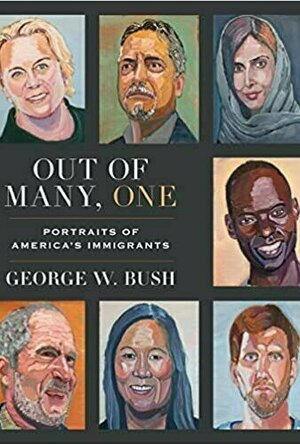
Out Of Many, One
Book
In this powerful new collection of oil paintings and stories, President George W. Bush spotlights...
Ashley Valencia (5 KP) rated Beauty and the Beast (2017) in Movies
Apr 13, 2019
I knew we were in trouble when Emma Watson started her first song of the film HEAVILY autotuned. The practice used to be that if an actor couldnt sing, they would lip sync and have someone else do the singing voice. This was also common practice for the animated films, one actor for singing and another for spoken lines. I wish they would've gone this route. The autotuning is just so heavy I found it cringey.
The film is gorgeous, a lot of pleasing visuals and effects but the Beast just looks, strange. Not really animalistic. Honestly more like if his face was carved out of a tree.
Despite the singing issue I do think the cast was well chosen. They all do a good job with what they have. Especially the actor playing Gaston. It seemed clear that they weren't 100% sure what to do with the character. At a few points it seemed like they were going to try to make him sympathetic but then they'd fall back on him just being awful. Still the actor did an amazing job and really sold it.
For the most part the plot sticks close to the original film though there are a few new elements, some background on Belle's mom, and new songs.
A few weeks before the film's release the director announced that there was definitely a gay character in the film. There are a few implications that there might be but that's it. I think honestly it would've come across better, he would've been given more credit, if he'd just let it be instead of making a big announcement and patting himself on the back. It would've seemed like a subtle nod to the lgbtq community instead of the false disappointing promise it turned out to be. He wanted the credit without actually putting in the work and it shows.
Overall I just didn't care for it. It's fine. Nothing spectacular. The animated film was definitely better. So I'd say stick with the classic however it is worth watching just to see the different interpretation of the story.
If you want a live action version I would recommend La Belle et la Bete, the 2014 French-Germanic version instead. It's a more interesting and visually stunning version of the story.

Lexia Reading Core5
Education
App
Use of this app requires an active account for Lexia Reading Core5™. If you do not have a username...
Merissa (13780 KP) rated In Safe Arms (My Truth #2) in Books
Sep 23, 2019
Now, Trent was never my favourite, but don't you just love it when an author spins you on your head and you actually end up rooting for the guy?!?!? This is what happened with Trent. I will say I am surprised how many times Angelo actually stayed with him. That man is a saint!!! Yes, the reasons are all there, and trust me, you will certainly feel for Trent by the end of it. His was a hard, rocky path to follow, and luckily for him, Angelo DID stick by him.
This is a moving story, that is exceptionally well-written. I was fully invested with the characters and the storyline, which flowed amazingly well. Now, you may be wondering why I've only given this four stars if I'm raving about it. It is simply some parts of the story disappeared. They are not major parts of the story by any means, but I was left with a nagging toothache, wondering just what had happened to... well, it's not for me to say. I would suggest you read this for yourself, and then you might see what I mean, or you might be that blown away by the rest of the story, that it doesn't matter. It doesn't affect the whole story, I promise you that.
With no editing or grammatical errors, this book was a hard but satisfying read, and definitely recommended by me.
* A copy of this book was provided to me with no requirements for a review. I voluntarily read this book, and the comments here are my honest opinion. *
Merissa
Archaeolibrarian - I Dig Good Books!

Clean Eating Alice: Feel Fit and Fabulous from the Inside Out
Book
Alice will inspire you to discover a new way of eating and exercising that banishes low-calorie,...
Gareth von Kallenbach (980 KP) rated The Woman in Black (2012) in Movies
Aug 7, 2019
Arthur Kipps (Daniel Radcliff) is a young lawyer who lost his wife during the birth of his son. He is a hardworking man who will do anything to take care of his family. Duty calls when he is ordered to go to the home of a recently diseased woman who lives in a remote marsh. When the local town catches wind that Mr. Kipps will be working at the remote house they start to fear what he might uncover while he works within the walls of the creepy home. He soon starts hearing noises and seeing shadows of an old woman in black. The town seems to think that it is somehow cursed as children keep dying unexpectedly and in bizarre circumstances. Is this the result of a woman scorned or is it just a superstition? Without the help from the town Mr. Kipps races to find out what the secret of the Woman in Black is.
Daniel Radcliff picked the perfect project to stray away from the Harry Potter series and I am glad he did. Now don’t get me wrong; the Harry Potter series is pretty awesome but the fact of the matter is most child actors don’t go very far within their acting careers. Take Shirley Temple for instance, she ended up not getting any major roles after growing out of her child faze. In any case it was a perfect decision on his part to take the chance on this character and just proves that we will be seeing much more of him throughout the coming years.
If you enjoy a good ghost story from time to time, The Woman in Black is such a treat to watch. Finally a really good ghost story that is not filmed like a home movie or a documentary but encompasses what a good ghost story should. The movie also has tidbits of British humor which I am a big fan of. Really good ghost stories like this one will chill you to the bone and startle your senses. Not an award winning movie but an excellent spine tingling story without the gore and special effects we have all become anesthetized to. Don’t miss this one in theaters I promise you won’t be disappointed.
